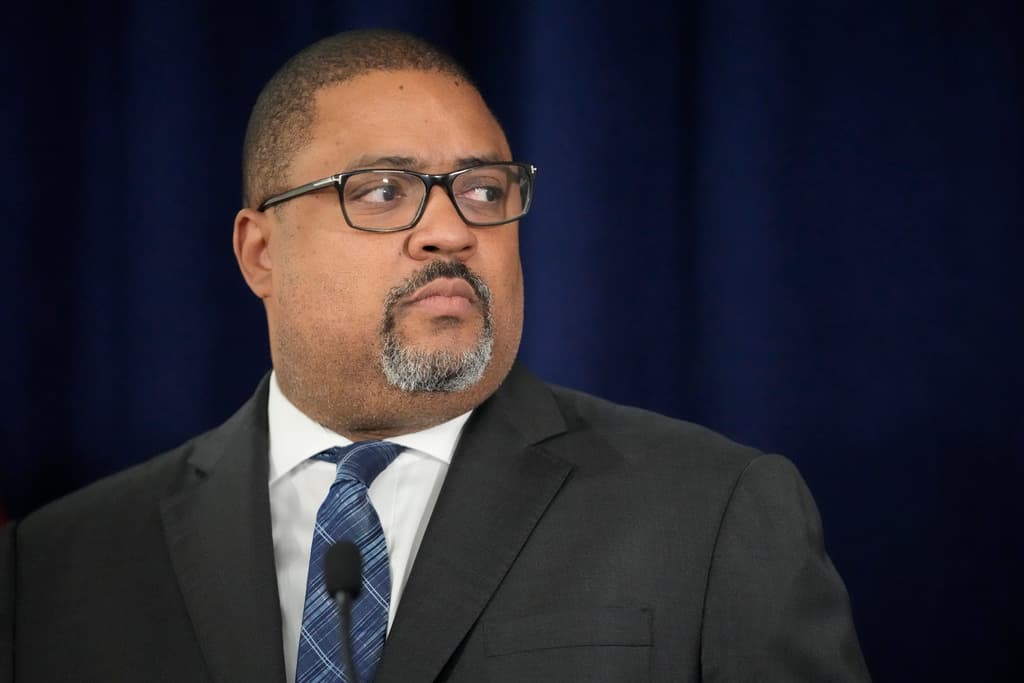Trump Moves To Dismiss Alvin Bragg’s Case, Calling It an ‘Unlawful Crusade’
The 47th president throws the kitchen sink at the district attorney but new and potentially important arguments are in the mix.

President-elect Trump’s filing late Tuesday to Judge Juan Merchan of a motion to dismiss his hush money convictions underscores his brightening legal position in the wake of last month’s electoral victory.
Trump’s attorneys — Todd Blanche and Emil Bove — write: “Presidential immunity, the Presidential Transition Act, and the Supremacy Clause” all require that the verdicts brought in by a New York jury be dismissed. District Attorney Alvin Bragg, who prosecuted the case, has encouraged Judge Merchan to explore “non-dismissal options” that would pause the prosecution for the length of Trump’s second term.
Messrs. Blanche and Bove — both of whom Trump has ticketed for high positions in his Department of Justice — contend that what they call Mr. Bragg’s “failed lawfare case” should be immediately dismissed. They insist that the Constitution is an “absolute impediment” to the case continuing during the presidential transition, let alone after Trump takes the oath of office on January 20.
Trump’s team cites President Biden’s criticism of his own Department of Justice, made in a statement Monday when he pardoned his son Hunter. The defense lawyers accuse Mr. Bragg of engaging in “precisely the type of political theater that President Biden condemned.” The county prosecutor, they assert, built his case on a “contrived, defective, and unprecedented legal theory.” They call Mr. Bragg’s case “empty and lawless.”
The 45th president asserts that the “case should never have been brought, particularly during a period when DA Bragg’s failure to protect this City from pervasive violent crime frightens, threatens, and harms New Yorkers on a daily basis.” Mr. Bragg will face voters next year.
The decision whether to dismiss what Trump calls Mr. Bragg’s “unconstitutional crusade” rests with Judge Merchan, who has been sympathetic to the government over the course of the trial. The motion is a bit like the famous kitchen sink: The president-elect’s lawyers have included in the motion every possible objection to the charges and verdict, from the political views of the judge’s daughter to the credibility of a key witness, Michael Cohen, Trump’s former fixer.
There are, though, newsworthy elements to the latest filing. In particular, it debuts the argument that the immunity from prosecution afforded to sitting presidents — the Department of Justice calls it “categorical” — also applies to state cases, like the ones launched by Mr. Bragg and the district attorney of Fulton County, Fani Willis.

